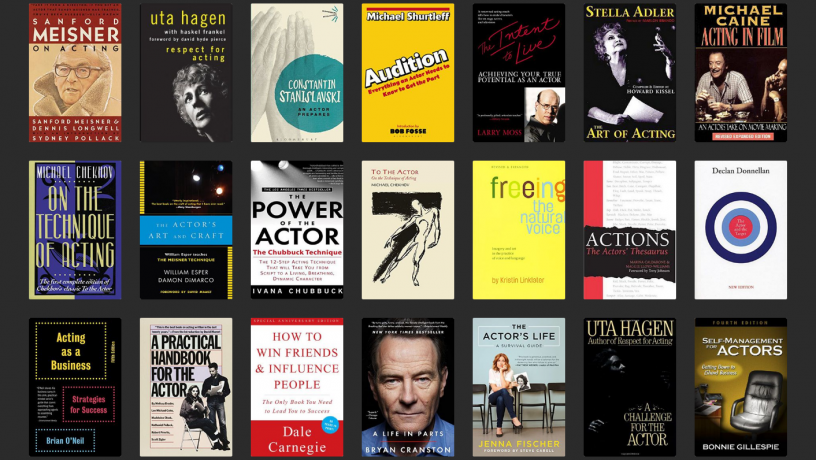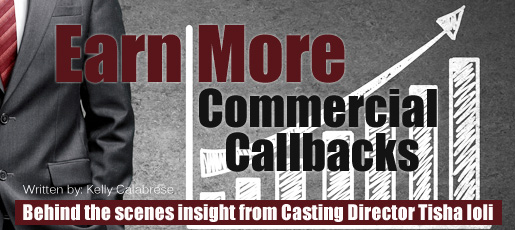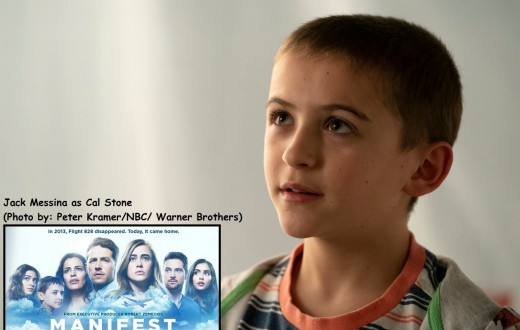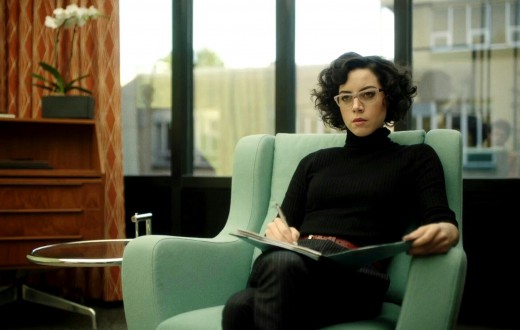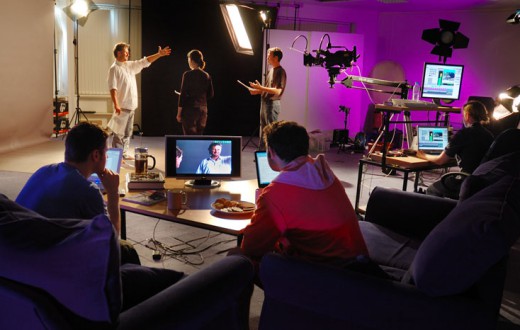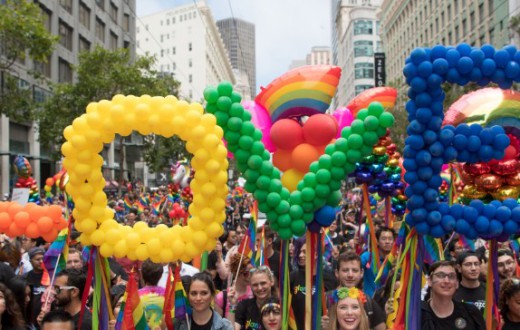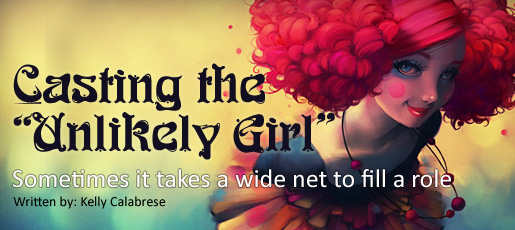Embarking on a journey in the acting world is a unique adventure that requires not just raw talent but also a deep understanding of the craft. Books on acting serve as invaluable resources, offering guidance, techniques, and insights from seasoned professionals. For those who tread the boards or illuminate the screen, absorbing wisdom from these texts can be transformative.
In the realm of acting, continuous learning is key to personal and professional growth. Books on acting provide a foundation of knowledge, from theoretical frameworks to practical exercises, aiding actors in honing their skills and deepening their emotional expressiveness. Whether you’re interpreting Shakespeare or starring in a contemporary film, these books offer a spectrum of perspectives that enrich an actor’s repertoire.
This curated selection of books on acting is designed to inspire and educate actors at all levels. From classic methodologies to modern interpretations, each book offers a unique lens through which the art of acting can be explored and mastered. These texts are not merely instructional; they are a source of inspiration, a means to challenge oneself, and a guide for artistic exploration. As you delve into these pages, allow the collective wisdom of these authors to guide your path in the dynamic world of acting.
1. “An Actor Prepares” by Constantin Stanislavski
- Overview: This seminal work by Constantin Stanislavski is a must-read for any actor. It introduces the Stanislavski method, a system of acting techniques that has shaped modern acting.
- Key Takeaways: The book delves into the ‘system’ of acting, exploring concepts such as emotional memory, the magic if, and the art of experiencing over mere representation.
- Why It’s Important: It lays the foundation for method acting and provides actors with a structured approach to their craft.
2. “The Actor’s Art and Craft” by William Esper and Damon DiMarco
- Overview: This book offers a detailed look into the Meisner technique, guided by one of the most respected acting teachers, William Esper.
- Key Takeaways: The text demystifies the Meisner approach, emphasizing honesty, spontaneity, and living truthfully under imaginary circumstances.
- Why It’s Important: It provides practical exercises and insights, helping actors develop a reliable and effective acting technique.
3. “Respect for Acting” by Uta Hagen
- Overview: Uta Hagen, a revered actress and teacher, presents her approach to acting in this influential book.
- Key Takeaways: Hagen discusses the concept of substitution, the importance of sensory awareness, and how to achieve authenticity on stage.
- Why It’s Important: The book offers a straightforward, no-nonsense approach to acting that emphasizes the actor’s responsibility to their role and audience.
4. “Audition” by Michael Shurtleff
- Overview: A practical guide for actors, “Audition” provides invaluable advice on how to navigate auditions successfully.
- Key Takeaways: Shurtleff offers 12 guideposts for actors, covering aspects like relationship, conflict, and immediacy, to help them deliver compelling auditions.
- Why It’s Important: It’s a comprehensive resource that tackles the often daunting process of auditions, offering strategies to stand out and perform under pressure.
5. “Acting: The First Six Lessons” by Richard Boleslavsky
- Overview: This classic text presents the fundamental principles of acting in an accessible and engaging manner.
- Key Takeaways: Boleslavsky’s lessons cover the essentials of acting, from concentration and memory to dramatic action and characterization.
- Why It’s Important: The book’s format as a series of dialogues makes it an enjoyable read while imparting crucial insights into the actor’s craft.
6. “The Intent to Live” by Larry Moss
- Overview: Larry Moss, a renowned acting coach, shares his insights on the craft of acting, drawing from his extensive experience in the industry.
- Key Takeaways: The book emphasizes the importance of intention, character analysis, and the actor’s emotional life, offering practical techniques to enhance performance.
- Why It’s Important: Moss provides a comprehensive guide to inhabiting a character fully, making it an essential read for actors seeking to deepen their understanding and execution of their roles.
7. “The Power of the Actor” by Ivana Chubbuck
- Overview: In this influential book, Ivana Chubbuck presents a 12-step acting technique that combines the power of psychology with traditional acting methods.
- Key Takeaways: Actors learn to use their personal experiences to fuel their performances, creating more authentic and powerful portrayals.
- Why It’s Important: Chubbuck’s approach has been embraced by many successful actors, making this book a staple for those looking to deepen their emotional connection to their roles.
8. “Meisner on Acting” by Sanford Meisner
- Overview: This book offers a comprehensive look at the Meisner technique, straight from its legendary founder, Sanford Meisner.
- Key Takeaways: The book emphasizes living truthfully under imaginary circumstances and the importance of repetition exercises in developing an actor’s instinct.
- Why It’s Important: It provides a detailed exploration of one of the most influential acting methods, offering practical exercises and insights that are crucial for actors seeking to develop a natural, responsive approach to their craft.
9. “A Challenge for the Actor” by Uta Hagen
- Overview: Uta Hagen expands upon her earlier work in “Respect for Acting,” offering more advanced techniques and concepts for the seasoned actor.
- Key Takeaways: The book delves into the challenges of character creation and the physical embodiment of roles, providing exercises that help actors make authentic and imaginative choices.
- Why It’s Important: It’s a deeper dive into acting that builds on Hagen’s foundational principles, ideal for actors looking to refine and challenge their craft.
10. “A Life in Parts” by Bryan Cranston
- Overview: In this captivating memoir, Bryan Cranston, renowned for his roles in television, film, and theater, shares the story of his life and career, offering a raw and intimate glimpse into his journey as an actor.
- Key Takeaways: Cranston provides readers with an honest look at the highs and lows of his acting career, from his early days of commercial gigs to his iconic role in “Breaking Bad.” The book is filled with personal anecdotes, lessons learned, and the strategies he employed to create some of his most memorable performances.
- Why It’s Important: “A Life in Parts” serves as a source of inspiration and practical advice for actors, demonstrating the persistence, creativity, and dedication required to succeed in the industry. Cranston’s reflections on his diverse roles and experiences offer valuable insights into the art and craft of acting, making this book a must-read for those looking to deepen their understanding of what it means to live a life in parts.
These books, each with its unique approach and insights, provide valuable resources for actors seeking to explore different facets of their craft, from psychological depth to practical technique. Whether you’re new to acting or a seasoned professional, integrating the wisdom from these texts can enhance your performances and deepen your understanding of what it means to be an actor.

